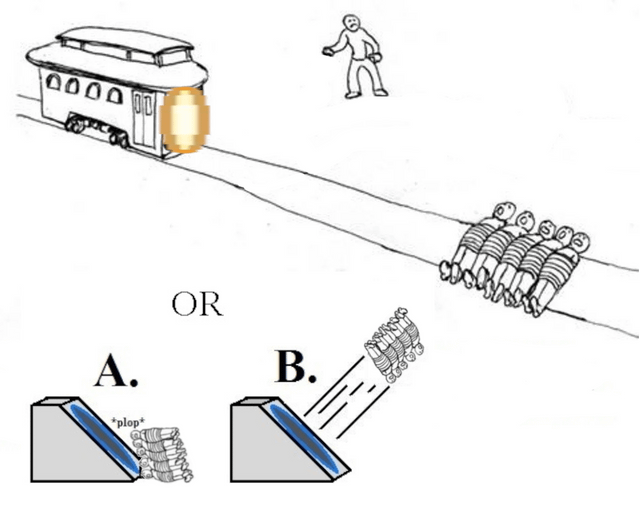this post was submitted on 18 Aug 2023
924 points (97.0% liked)
Memes
52807 readers
847 users here now
Rules:
- Be civil and nice.
- Try not to excessively repost, as a rule of thumb, wait at least 2 months to do it if you have to.
founded 6 years ago
MODERATORS
you are viewing a single comment's thread
view the rest of the comments
view the rest of the comments

Unfortunately, this isn't testable in Portal because portals can't be affixed to moving surfaces.
I would assume the people just plop out fine since they would retain their momentum (which is nil), and the portal's own momentum wouldn't be applied to them. But God damn it I wish I could just make a Portal map with a moving portal and see.
If we assume local relativity, their momentum, which would then be relative to the orange portal (the one which they will interact with), wouldn't be "nil". It is pretty clear to me that both portals have different relativities, and therefore, would clearly lead to case B.
Then I could imagine a sport where you have a racquet with a portal on it, and you swipe at a suspended ball, with a target somewhere beyond the other portal.
Think of a portal like a doorway or just a frame of one. Stepping through it seamlessly puts you on the other side. If you were standing still, and the door went around you, would any force be exerted upon you, causing you to move? That's why I think it would be A. Nothing is applying any force to you, you're just basically teleporting. You may not even actually fully emerge from the portal, being trapped on the threshold, since no force is moving you beyond the point where the two ends meet.
No, a doorway means the two portals don't move relatively to each other. Which is clearly not the case here.
Considering that portals are quite literally linked in a spatial manner, it would make sense that they physically cannot move independantly. Moving the orange portal would also move the blue portal. Or from a different perspective: the portals are always fixed in space, but their surrounds can move.
But that does not make the question shown here untestable. It just means the output portal will have a velocity of it's own.
How to test: place 2 portals next to each other on a wall. Then apply propulsion gel in front of the orange portal. And finally move yourself at high speed through the orange portal.
If your speed is unchanged after exiting the blue portal, but your velocity has been inverted with respect to the direction that the wall is facing, we can conclude option B must hold.
Trouble is even if you could, all that would show is what would happen under the developer's implementation of the concept in their simulation, not what would happen if portals were real and you tried this which is really the spirit of the question.
EDIT: Actually mate, if you want to know what the game does with it, looks like a few people actually managed to experiment with this https://www.youtube.com/watch?v=S85nudR6D-Y ages back. Disappointing result, again it just shows what the game would do though.